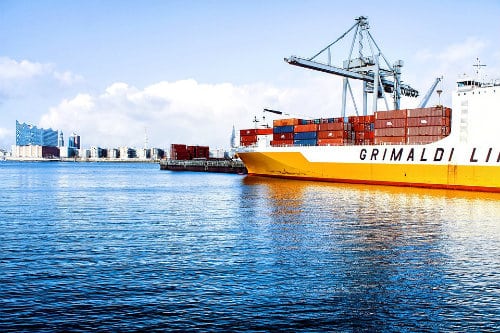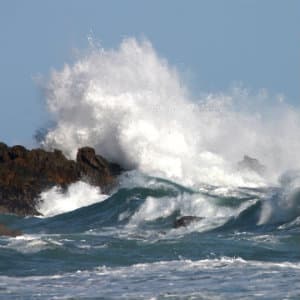If you’ve recently suffered a maritime work injury, you may be looking for help regarding your legal rights:
Contact one of our experienced maritime lawyers today for assistance with your concerns.
Every day, tens of thousands of offshore and maritime workers throughout the country work in hazardous and physically demanding conditions. Whether working in cargo and shipping, fishing, offshore oil drilling, or another maritime industry, the risk of a serious or even fatal injury is higher than most other industries. According to a report by the CDC, offshore oil rig workers are 7 times more likely to die on the job than all other workers.
Because of the high frequency of injuries, many law firms have begun to reach out to maritime workers through radio advertisements. These ads can help to alert injured offshore and maritime workers of their right to financial compensation through federal laws like the Jones Act, Longshore and Harbor Workers’ Compensation Act (LHWCA), and the Death on the High Seas Act (DOSHA) – for surviving families of fatal accident victims.
Contact our offshore accident law firm today to learn more.
If you heard one of these radio ads and arrived here after a search engine query, you’re in the right place. While a short radio spot can help to notify workers of the fact that they have rights, exploring these rights in full takes a bit more effort. On this page you’ll find some general information on which forms of compensation you may qualify for, and the steps you need to take following a maritime or offshore work injury.
However, remember that each injury case involves its own unique set of circumstances. In order to fully explore your legal options and ensure that you recover the full financial compensation you’re entitled to, it’s often necessary to discuss your case with an experienced maritime injury lawyer. Maritime law involves several complex legal statutes. It’s easy to get confused by the process, but a lawyer who specializes in this field can help guide you through the process, deal with insurance companies on your behalf, and help you secure the financial compensation your family needs.
To learn more about your options for financial compensation, contact us today for a free consultation with one of our maritime injury lawyers.
Depending on the nature of your work duties and your work setting, you may be eligible for benefits under one of two main financial compensation systems:
Crew members of ships and other workers who spend at least 30% of their time in service of a vessel on navigable waters are covered under the Jones Act.
In the event of a maritime work injury, the injured worker is entitled to benefits known as maintenance and cure under this Act. These benefits provide financial compensation for necessary daily living expenses like rent, food and groceries (maintenance) and also for medical expenses related to the injury, up until the injured worker reaches maximum improvement as determined by a doctor (cure).
Unlike no-fault workers’ compensation claims, a Jones Act claim also considers how negligence may have contributed to the injury. If your injury was caused by a careless mistake, safety violation, or another form of negligence from your employer or a co-worker, you could hold your employer liable for financial damages in a Jones Act claim.
Vessel owners may also be held liable when their vessels contain some form of dangerous condition, defect, or failure to meet safety standards. Legally, this is known as the concept of unseaworthiness. If a maritime worker gets injured on an unseaworthy vessel, that worker could also recover financial compensation from the vessel owner in a separate unseaworthy claim under the Jones Act.
Maritime employees who are not covered under the Jones Act are generally covered by the LHWCA. While benefits under this act offer similar forms of compensation as a land-based state workers’ comp claim, LHWCA claims are made at the federal level. Workers covered under this act generally include any maritime worker who primarily works on-shore, including at docks, harbor, ports, piers, and other maritime settings.
Depending on the severity of your injuries, you may be eligible for one of the following forms of damages under this Act:
If you’ve lost a loved one in a preventable and fatal maritime accident, your family could recover financial compensation under DOSHA. The loss of a loved one in a work accident doesn’t only involve grief and mourning – it also creates financial difficulties. Claims made under this Act can help families survive financially after the untimely death of a spouse or parent.
A DOSHA claim may cover the following expenses:
In order to qualify for a DOSHA claim, your loved one’s accident must have occurred at sea and at least 3 miles off the coast of the United States.
Be aware that claims under both of these acts can be extremely complex. Maritime law is complicated, and your employer’s insurance company will have skilled lawyers who specialize in denying work injury claims. It’s often necessary to have your own maritime lawyer who has the experience and resources to stand up for your right to financial compensation after a serious maritime work injury.
To find out more about your options, contact us today for a free initial consultation with one of our dedicated maritime work injury lawyers.
Read More:


 info@legalherald.com
info@legalherald.com